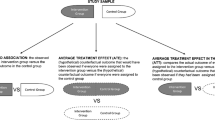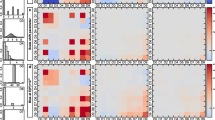Abstract
How do jurors accomplish the task of awarding damages in a civil lawsuit? to what extent are they influenced by expert testimony? These questions were addressed in a mock juror simulation in which jurors from El Paso County (Colorado) read one of three versions of a trial manuscript involving an age discrimination claim in which liability was already determined. They awarded damages and answered follow-up questions. In one version, there was no expert testimony; in a second version, they received plaintiff expert testimony on lost future wages and other economic matters; and in the third version, they received both plaintiff and defense expert testimony. Monetary awards were significantly higher when expert(s) testified. Moreover, jurors were strongly influenced by the expert testimony: Nearly half of them selected a damage award that exactly matched the amounts suggested. Finally, jurors infrequently considered exponential calculations in assessing damages.
Similar content being viewed by others
References
Broeder, D. W. (1959). The University of Chicago jury project.Nebraska Law Review.38, 744–760.
Cavoukian, A., & Heslegrave, R. J. (1980). The admissibility of polygraph evidence in court: some empirical findings.Law and Human Behavior, 4, 117–132.
Chaiken, S., & Stangor, C. (1987). Attitudes and attitude change.Annual Review of Psychology, 38, 575–630.
Eagly, A. H., & Chaiken, S. (1984). Cognitive theories of persuasion. In L. Berkowitz (Ed.),Advances in experimental social psychology, 17, New York: Academic Press.
Goodman, J. (1986). Probabilistic scientific evidence: Jurors' inferences. Unpublished manuscript, University of Washington.
Goodman, J., Greene, E., & Loftus, E. F. (1989). Runaway verdicts or reasoned determinations: Mock juror strategies in awarding damages.Jurimetrics Journal, 29, 285–309.
Singer, A. (1988). They didn't really blame the cigarette makers.American Lawyer, Sept. 31.
Thompson, W. C., & Britton, R. L. (1988). Communicating the results of paternity tests. Paper presented at American Psychology-Law Society, Miami.
Wagenaar, W. A., & Timmers, H. (1978). Extrapolation of exponential time series is not enhanced by having some more data points.Perception and Psychophysics, 24, 182–184.
Zuehl, J. J. (1982). The ad damnum, jury instructions, and personal injury damage awards. Unpublished manuscript, University of Chicago.
Author information
Authors and Affiliations
Additional information
This research was supported by a grant from the Law and Social Sciences Program at the National Science Foundation. The paper is based on a master's thesis submitted to the University of Colorado by the first author. We thank Colorado Fourth Judicial District Presiding Judge Donald Campbell, Court Administrator Douglas Haxton, and Jury Commissioner Eldene Mosbarger for allowing us access to jurors and Valerie Stromquist and Alisa Cohen for their research assistance.
About this article
Cite this article
Raitz, A., Greene, E., Goodman, J. et al. Determining damages. Law Hum Behav 14, 385–395 (1990). https://doi.org/10.1007/BF01068163
Published:
Issue Date:
DOI: https://doi.org/10.1007/BF01068163




